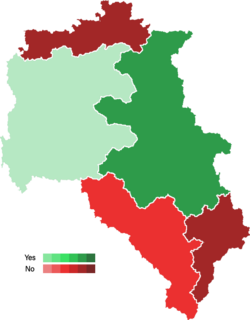User:Hifax/Sandbox
| 1979 Piraean national plebiscite | |||||||||||||||||||
|---|---|---|---|---|---|---|---|---|---|---|---|---|---|---|---|---|---|---|---|
| Continuation of Ioannis Christodoulopoulos and the rest of the Junta | |||||||||||||||||||
| Date | 5 July 1979 | ||||||||||||||||||
| |||||||||||||||||||
| |||||||||||||||||||
The 1979 Piraean national plebiscite (Piraean: 1979 Εθνικό δημοψήφισμα της Πειραεάς) was a referendum realised in Piraea during July 1979, in which the electorate was asked about the continuation of Ioannis Christodoulopoulos and the military junta as Head of State and Government.
The referendum was conducted a year after the death of Konstantinos Athanopoulos, who ruled the Second Piraean Republic as a military dictatorship. That same year, the members of the military junta voted Ioannis Christodoulopoulos, who occupied the role of Commander-in-Chief of the Air Force, to be the Premier and sought to renew their term in power through the plebiscite. If the population approved the candidate of the junta and voted "Yes", the military institution would continue exercising as the executive, but if the result proved negative, a newly elected office and legislature would have been needed to be voted. Finally, the "No" to the candidate of the junta won by a 56% of the vote, igniting a process known as "Metapolitefsi" (Piraean: Μεταπολίτευση) or "regime change", which concluded with the general elections of 1980.
It is believed that international pressure from other Euclean nations and Piraean big business were crucial in the decision of the junta of respecting the results, as Piraea was one of the few remaining dictatorships of East Euclea.
